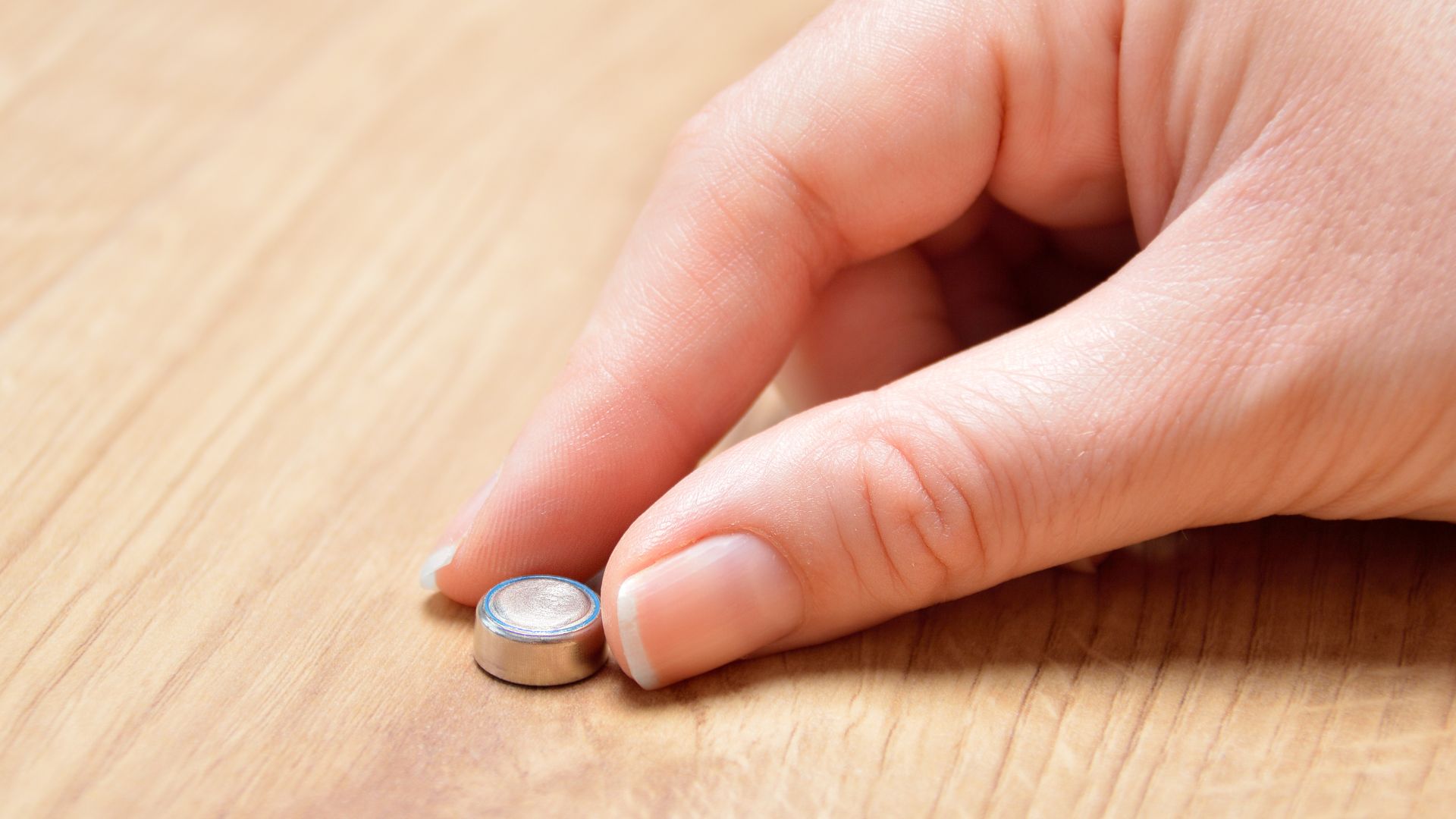These batteries are particularly dangerous due to their highly corrosive properties
Every parent knows that kids love to put things in their mouths, especially shiny small objects. And while adults know it’s never a good idea to put a battery in your mouth, button batteries are emerging as a leading cause of children’s battery-related emergency room visits.
In fact, a new study is showing these visits have more than doubled in the last 10 years, to the tune of 70,000. Those visits include situations where children have swallowed or inserted button batteries into their ears, nose, or mouth.
“Button batteries are the small disk shaped batteries used to power an increasing number of devices, including remotes, toys, watches and key fobs,” explains the study’s first author, Mark Chandler, a senior research associate at Safe Kids Worldwide.
Related: These Batteries Taste Terrible––Here’s Why

Since they are so common, one might assume that devices keep them locked up nice and tight, but that isn’t the case. Many of them can be accessed quite easily, by simply sliding off the cover of a remote, for example, and are not considered child resistant.
Just because they are small, does not mean they are any less dangerous than larger batteries. “Button batteries and lithium batteries are particularly dangerous,” Mary Beth Howard, a pediatric emergency medicine physician, told NBC News. “When they come in contact with body fluids, a current is generated, and that produces a small amount of sodium hydroxide, which is also known as lye. It’s highly corrosive, and it can burn a hole through tissue. You can imagine that a hole in the esophagus, the stomach, an ear canal, or the nasal septum is a serious injury that can cause illness and even death in some cases.”
The danger doesn’t stop if the battery is considered dead. Chandler says that most of these batteries can still hold a residual charge that can cause damage, in addition to the choking hazard that remains for leaving one lying around.

Parents should “treat button batteries the same way they treat cleaning chemicals or the knives in the kitchen,” Dr. Christopher Strother, the director of pediatric emergency medicine at Mount Sinai Hospital in New York City, told NBC News. “You need to put them away so children can’t reach them and then dispose of them correctly.”
So what should you do if your child still manages to ingest a button battery? Dr. Strother says to give your child two teaspoons of honey (if they are older than one year old) then head to the ER. “Recent studies have shown that honey can help protect the child by coating the battery and also by neutralizing the chemical reactions that are happening.”
Now’s the perfect time to do a cursory sweep of your home and put every battery out of reach.











